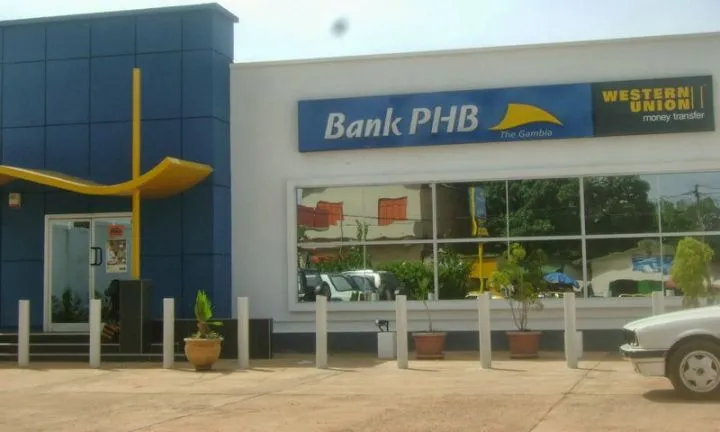7 Nigerian banks that shut down over the years

![Nigerian banks that shut down over the years [TheNorthBankEvening] Nigerian banks that shut down over the years [TheNorthBankEvening]](https://static.netnaija.com/i/4lNmy6D0NRo.webp)
Nigeria’s banking history hasn’t always been smooth. Today we see mega institutions like Zenith, GTB, and Access Bank dominating the landscape; not every bank that once existed made it to 2025.
In fact, many names that used to ring bells across the country have quietly disappeared, shut down, acquired, or swallowed by regulatory crackdowns.
These banks didn’t just vanish overnight. Most were victims of poor corporate governance, mismanagement, failure to meet recapitalisation deadlines, or were simply too weak to survive the waves of reform that swept through Nigeria’s financial sector in the 1990s and 2000s.
Here’s a look at seven notable Nigerian banks that no longer exist, and what led to their downfall.
1. Savannah Bank
One of the most dramatic collapses in Nigerian banking history, Savannah Bank was once one of the top financial institutions in the country. With over 140 branches and a strong customer base, it was abruptly shut down by the Central Bank of Nigeria (CBN) in 2002.
The CBN cited inadequate capital base and non-compliance with banking regulations as the reasons for revoking its license. There were also allegations of mismanagement.
After a long legal battle, the bank’s license was restored in 2009, but it has not returned to full operations since.
2. Societe Generale Bank of Nigeria (SGBN)
Founded by the Saraki family, SGBN was a respected institution in the 1990s and early 2000s. With a reputation for innovation and community outreach, it shocked many when it was shut down in 2006.
Failure to meet the ₦25 billion minimum capital requirement imposed by the CBN during the major banking consolidation exercise led to its closure.
The bank later re-emerged under a new identity as Heritage Bank in 2012 after acquiring a banking license through Enterprise Bank.
3. Oceanic Bank
Once a banking giant, Oceanic Bank had branches all over the country and a commanding presence in corporate and retail banking. But cracks started to show during the global financial crisis of 2008-2009.
The CBN discovered serious issues of insider lending, non-performing loans, and corporate fraud during an audit in 2009. The then-CEO, Cecilia Ibru, was later convicted and sentenced after a plea bargain.
Oceanic was taken over and merged into Ecobank in 2011.
4. Bank PHB (Platinum Habib Bank)
Bank PHB was formed during the 2005 banking consolidation and grew rapidly, becoming one of Nigeria’s largest banks. Its flashy branding and aggressive marketing made it quite popular in the late 2000s.
In 2011, the CBN revoked its license due to failure to recapitalise and unhealthy financial practices. The bank was among the 10 that couldn’t meet the regulatory threshold set by the apex bank.
Its assets and liabilities were absorbed by a newly formed bridge bank, Keystone Bank, which still operates today.
5. Spring Bank
Spring Bank was created through the merger of six smaller banks during the 2005 banking reform era. It never quite gained solid footing and struggled almost from the start.
It closed down due to poor management, liquidity issues, and inability to recapitalise led to its license being revoked in 2011. It was later taken over by Enterprise Bank, which eventually merged into Heritage Bank.
6. Afribank
Afribank was one of Nigeria’s oldest financial institutions, founded in 1959. For decades, it served individuals and businesses, becoming a household name.
However, during the banking reforms of 2011, the CBN intervened due to concerns about insolvency. Afribank couldn’t meet recapitalisation requirements and was taken over by the government. Its assets and some liabilities were transferred to a newly created institution, Mainstreet Bank, which was later acquired by Skye Bank.
7. Allstates Trust Bank
Allstates Trust Bank was another casualty of Nigeria’s 2005 banking consolidation exercise. At the time, banks were required to increase their capital base from ₦2 billion to ₦25 billion. Many couldn’t meet this requirement.
Allstates Trust Bank failed to merge or recapitalise and had issues with regulatory compliance. The CBN revoked its license, and its operations ceased.
Why so many banks failed
The Nigerian banking sector has been shaped by multiple waves of reform and crisis. Key reasons for past bank failures include:
-
Weak internal controls
-
Corruption and insider abuse
-
Failure to meet capital requirements
-
Poor regulatory compliance
The CBN’s efforts to clean up the sector, especially under the leadership of Sanusi Lamido Sanusi (then CBN Governor), led to strict recapitalisation policies and the closure of several underperforming or fraudulent banks.





